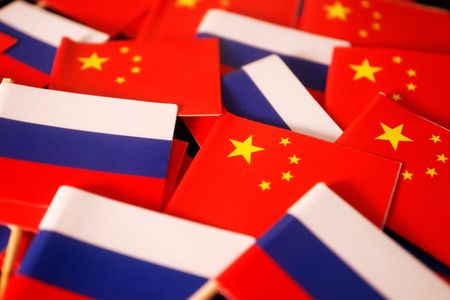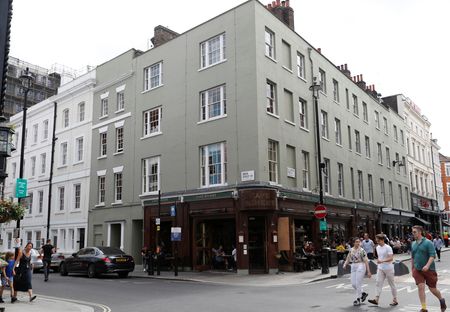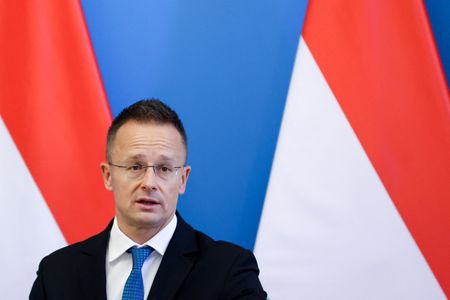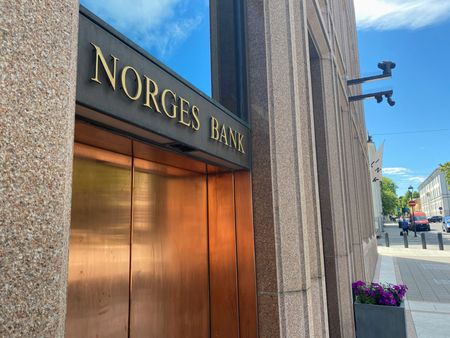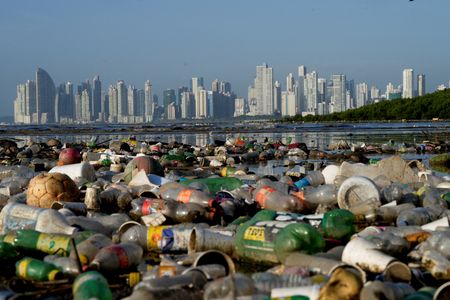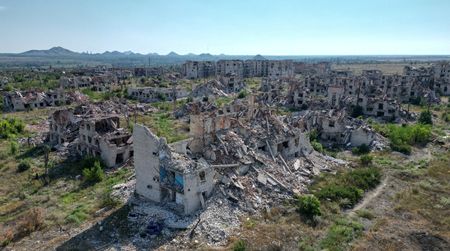MOSCOW (Reuters) -In Russia, barter is back for the first time since the chaos of the 1990s as settlement problems resulting from the conflict in Ukraine have forced at least one Chinese company to seek steel and aluminium alloys in exchange for engines.
In the economic and political chaos which followed the 1991 collapse of the Soviet Union, spiralling inflation and chronic shortages of funds forced enterprises across the land to agree to payment in kind.
Barter, though, sowed even more chaos through the economy as vast chains of contingent deals were set up for everything from electricity and oil to flour, sugar and boots, making pricing even harder to determine, and earning some people fortunes.
More than three years into the Ukraine war, barter is back again in Russia.
At the Kazan Expo business forum on Monday, Chinese companies cited settlement issues and Russian demands that they bring production to Russia as major issues hindering the development of bilateral trade.
“We offer innovative cooperation models aimed at reducing settlement risks,” Xu Xinjing from Hainan Longpan Oilfield Technology Co., Ltd told the forum through a translator, adding that “we offer a model of barter trade.”
In exchange for the power equipment, his company wants to receive Russian shipbuilding materials.
“In the current conditions of limited payments, this provides new opportunities for enterprises in Russia and Asian countries, the Asian region. For example, we supply marine engines in exchange for special steel materials or aluminium alloys for shipbuilding from Russia,” he said.
Russia last year discussed barter deals with China, sources told Reuters at the time. Barter is most popular for trades in metals and agricultural products, which are relatively easy to price, according to industrial sources.
China is by far Russia’s most important trading partner as European powers cut off many of their trade links to Moscow due to the conflict in Ukraine, which the Kremlin calls a “special military operation”.
Delays in payments for trade with Russia’s major partners such as China or Turkey where banks are under pressure from Western regulators to scrutinise transactions with Russia have become a major headache for Russian companies and banks.
(Reporting by Reuters; writing by Guy Faulconbridge; editing by Giles Elgood)

